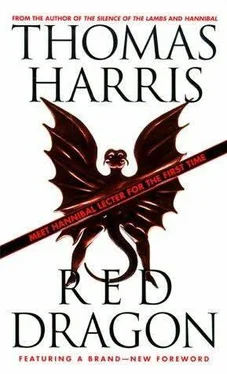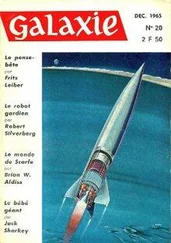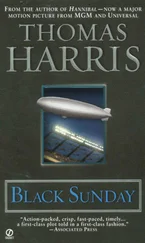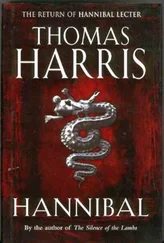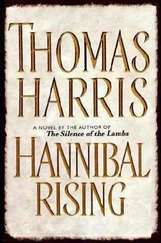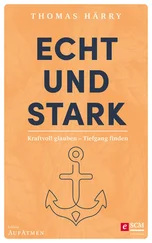“I’m working, Jack. Don’t worry about it. No, look, it’s just that she got jumpy over there.”
Graham pulled a flat package tied with string from beneath a stack of funeral pictures and began to pick at the knot.
“What’s that?”
“It’s from Byron Metcalf, the Jacobis’ lawyer. Brian Zeller sent it on. It’s okay.”
“Wait a minute, let me see.” Crawford turned the package in his hairy fingers until he found the stamp and signature of S. F. “Semper Fidelis” Aynesworth, head of the FBI’s explosives section, certifying that the package had been fluoroscoped.
“Always check. Always check.”
“I always check, Jack.”
“Did Chester bring you this?”
“Yes.”
“Did he show you the stamp before he handed it to you?”
“He checked it and showed me.”
Graham cut the string. “It’s copies of all the probate business in the Jacobi estate. I asked Metcalf to send it to me – we can compare with the Leeds stuff when it comes in.”
“We have a lawyer doing that.”
“ I need it. I don’t know the Jacobis, Jack. They were new in town. I got to Birmingham a month late, and their stuff was scattered to shit and gone. I’ve got a feel for the Leedses. I don’t for the Jacobis. I need to know them. I want to talk to people they knew in Detroit, and I want a couple of days more in Birmingham.”
“I need you here.”
“Listen, Lounds was a straight snuff. We made him mad at Lounds. The only connection to Lounds is one we made. There’s a little hard evidence with Lounds, and the police are handling it. Lounds was just an annoyance to him, but the Leedses and the Jacobis are what he needs. We’ve got to have the connection between them. If we ever get him, that’s how we’ll do it.”
“So you have the Jacobi paper to use here,” Crawford said. “What are you looking for? What kind of thing?”
“Any damn thing, Jack. Right now, a medical deduction.” Graham pulled the IRS estate-tax form from the package. “Lounds was in a wheelchair. Medical. Valerie Leeds had surgery about six weeks before she died – remember in her diary? A small cyst in her breast. Medical again. I was wondering if Mrs. Jacobi had surgery too.”
“I don’t remember anything about surgery in the autopsy report.”
“No, but it might have been something that didn’t show. Her medical history was split between Detroit and Birmingham. Something might have gotten lost there. If she had anything done, there’ll be a deduction claimed and maybe an insurance claim.”
“Some itinerant orderly, you’re thinking? Worked both places – Detroit or Birmingham and Atlanta?”
“If you spend time in a mental hospital you pick up the drill. You could pass as an orderly, get a job doing it when you got out,” Graham said.
“Want some dinner?”
“I’ll wait till later. I get dumb after I eat.”
Leaving, Crawford looked back at Graham from the gloom of the doorway. He didn’t care for what he saw. The hanging lights deepened the hollows in Graham’s face as he studied with the victims staring at him from the photographs. The room smelled of desperation.
Would it be better for the case to put Graham back on the street? Crawford couldn’t afford to let him burn himself out in here for nothing. But for something?
Crawford’s excellent administrative instincts were not tempered by mercy. They told him to leave Graham alone.
By ten P.M. Dolarhyde had worked out to near-exhaustion with the weights, had watched his films and tried to satisfy himself. Still he was restless.
Excitement bumped his chest like a cold medallion when he thought of Reba McClane. He should not think of Reba McClane.
Stretched out in his recliner, his torso pumped up and reddened by the workout, he watched the television news to see how the police were coming along with Freddy Lounds.
There was Will Graham standing near the casket with the choir howling away. Graham was slender. It would be easy to break his back. Better than killing him. Break his back and twist it just to be sure. They could roll him to the next investigation.
There was no hurry. Let Graham dread it.
Dolarhyde felt a quiet sense of power all the time now.
The Chicago police department made some noise at a news conference. Behind the racket about how hard they were working, the essence was: no progress on Freddy. Jack Crawford was in the group behind the microphones. Dolarhyde recognized him from a Tattler picture.
A spokesman from the Tattler , flanked by two bodyguards, said, “This savage and senseless act will only make the Tattler ’s voice ring louder.”
Dolarhyde snorted. Maybe so. It had certainly shut Freddy up.
The news readers were calling him “The Dragon” now. His acts were “what the police had termed the ‘Tooth Fairy murders.’”
Definite progress.
Nothing but local news left. Some prognathous lout was reporting from the zoo. Clearly they’d send him anywhere to keep him out of the office.
Dolarhyde had reached for his remote control when he saw on the screen someone he had talked with only hours ago on the telephone: Zoo Director Dr. Frank Warfield, who had been so pleased to have the film Dolarhyde offered.
Dr. Warfield and a dentist were working on a tiger with a broken tooth. Dolarhyde wanted to see the tiger, but the reporter was in the way. Finally the newsman moved.
Rocked back in his recliner, looking along his own powerful torso at the screen, Dolarhyde saw the great tiger stretched unconscious on a heavy work table.
Today they were preparing the tooth. In a few days they would cap it, the oaf reported.
Dolarhyde watched them calmly working between the jaws of the tiger’s terrible striped face.
“May I touch your face?” said Miss Reba McClane .
He wanted to tell Reba McClane something. He wished she had one inkling of what she had almost done. He wished she had one flash of his Glory. But she could not have that and live. She must live: he had been seen with her and she was too close to home.
He had tried to share with Lecter, and Lecter had betrayed him. Still, he would like to share. He would like to share with her a little, in a way she could survive.
“I know it’s political, you know it’s political, but it’s pretty much what you’re doing anyway,” Crawford told Graham. They were walking down the State Street Mall toward the federal office building in the late afternoon. “Do what you’re doing, just write out the parallels and I’ll do the rest.”
The Chicago police department had asked the FBI’s Behavioral Science section for a detailed victim profile. Police officials said they would use it in planning disposition of extra patrols during the period of the full moon.
“Covering their ass is what they’re doing,” Crawford said, waving his bag of Tater Tots. “The victims have been affluent people, they need to stack the patrols in affluent neighborhoods. They know there’ll be a squawk about that – the ward bosses have been fighting over the extra manpower ever since Freddy lit off. If they patrol the upper-middle-class neighborhoods and he hits the South Side, God help the city fathers. But if it happens, they can point at the damned feds. I can hear it now – ‘They told us to do it that way. That’s what they said do.”’
“I don’t think he’s any more likely to hit Chicago than anywhere else,” Graham said. “There’s no reason to think so. It’s a jerkoff. Why can’t Bloom do the profile? He’s a consultant to Behavioral Science.”
“They don’t want it from Bloom, they want it from us. It wouldn’t do them any good to blame Bloom. Besides, he’s still in the hospital. I’m instructed to do this. Somebody on the Hill has been on the phone with Justice. Above says do it. Will you just do it?”
Читать дальше
